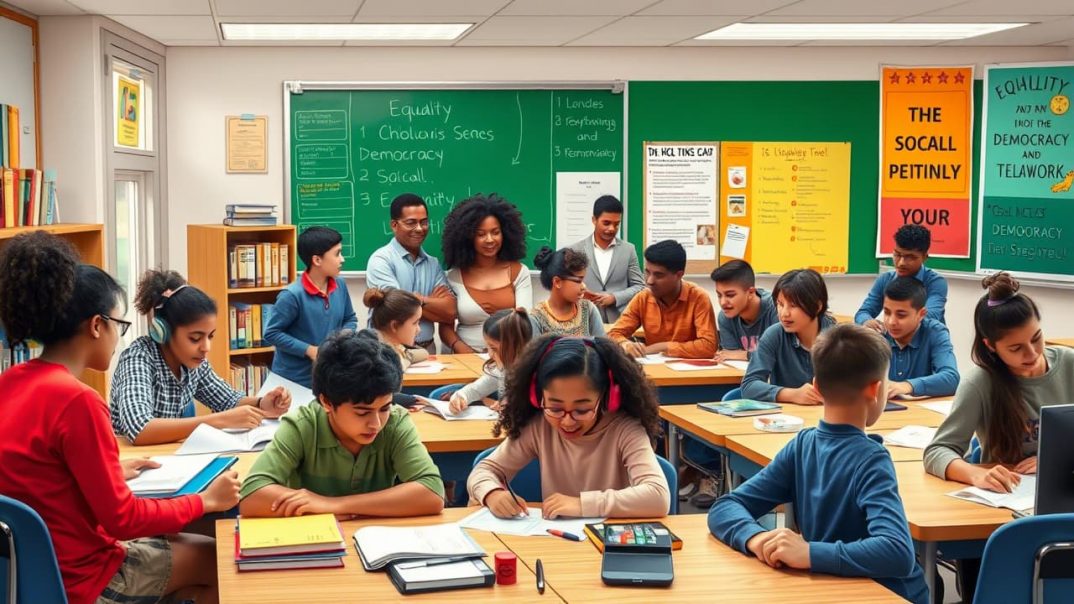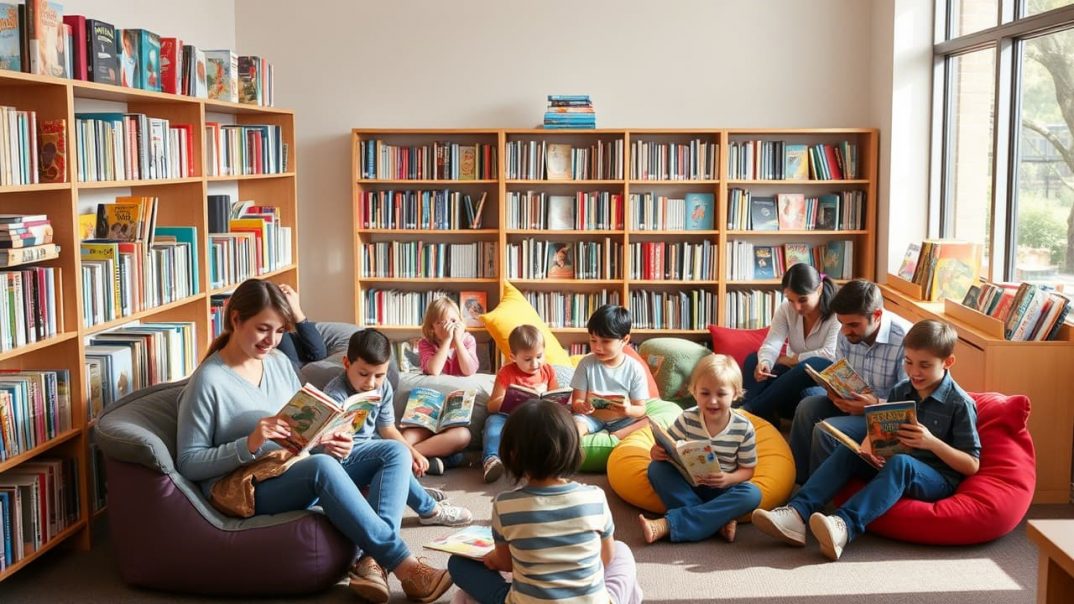Physical development Physical development has many things – height, weight, coordination, but most adults do not take into account the
Continue readingChild psychologist: “Five-year-olds have no place at the desk”
All the world is a laboratory to the inquiring mind.
6 to 12 months This period refers to a greater extent not to the plot and plot lines or stories,
Continue readingHow to teach your child to love books? (6-12 month old)
At this age, babies become more and more independent. Listen to your child and let him stop and interrupt you.
Continue readingHow to teach your child to love books? (12-18 month)
Age 3 to 5 years This is the period of active growing up of the baby. This age suggests that
Continue readingHow to teach your child to love books? (3-5 years old)
Physical development Physical development has many things – height, weight, coordination, but most adults do not take into account the
Continue readingChild psychologist: “Five-year-olds have no place at the desk”
6 to 12 months This period refers to a greater extent not to the plot and plot lines or stories,
Continue readingHow to teach your child to love books? (6-12 month old)
Bullying (from the English. To bull – to persecute) is the aggressive conscious behavior of one child (or group) towards
Is the full development of a child possible without additional education? Although the document “On Education” says that one of
Continue readingWhy do you need additional education for children
For most, the realities of life in Asian countries remain unknown. As a destination for tourism, this part of the
Continue readingFeatures of school education in the Far East
Perhaps the most pressing topic in the media world today is the issue of “fake news”. Even Elon Musk, the
Continue readingHow and why should children be able to distinguish between “fake news”?
All parents dream of a polite little child who says please and thank you. After all, your baby’s behavior reflects
Continue readingModeling behavior is the best way to teach your child good manners
A liberal education is not just about the acquisition of knowledge; it is about cultivating the ability to think critically, engage with diverse perspectives, and contribute thoughtfully to the community. At its core, a liberal education promotes the values of freedom, responsibility, and justice, all of which are foundational to a civil society. Yet, there is one key element that makes a liberal education truly transformative: the act of teaching. Teaching is not merely the transmission of facts but the nurturing of the intellect and spirit of learners, fostering both personal growth and societal progress.
As we reflect on the importance of education in shaping a better future, we must consider how the teaching process not only equips individuals with essential skills but also molds the values of empathy, respect, and community. For these reasons, the role of teaching within a liberal education is pivotal, and it is through effective teaching that we can cultivate the minds and hearts of future generations to build a more enlightened, compassionate society.
In a liberal education, teaching goes beyond textbooks and exams. It encourages active participation, inquiry, and exploration of ideas. A well-rounded education helps children and adults alike engage deeply with subjects across the humanities, sciences, arts, and social studies, building a holistic understanding of the world. This comprehensive approach empowers individuals to not only excel academically but also become thoughtful, informed citizens who can contribute meaningfully to society.
At the heart of this educational philosophy is the relationship between the teacher and the student. A teacher is not just an instructor but also a mentor and guide who fosters an environment where students can develop critical thinking skills, ask difficult questions, and make connections between ideas. Effective teaching nurtures a love for learning by encouraging curiosity, creativity, and problem-solving, which are essential to the development of young minds.
The act of teaching, therefore, is an essential function of a liberal education. It serves as the foundation upon which future generations can build their knowledge, character, and sense of social responsibility. Educators are responsible for inspiring children to become lifelong learners, thinkers, and contributors to society, not just passive recipients of information.
The link between a liberal education and a civil society is evident in the way education shapes individuals who are equipped to engage in the democratic process and contribute to societal well-being. A civil society is one where individuals, organizations, and institutions work together to foster justice, equity, and mutual respect. Education is the catalyst that enables individuals to understand and embrace their roles within this broader societal framework.

When children are educated in a way that encourages critical thinking, empathy, and collaboration, they are more likely to grow into adults who value democracy, human rights, and social justice. Education fosters civic responsibility by teaching children how to engage with issues of public concern, consider multiple perspectives, and act thoughtfully in the best interest of the common good.
A well-structured liberal education empowers students to question assumptions, challenge injustices, and develop solutions to complex problems. It provides them with the tools to understand and navigate societal systems, whether in government, business, or the arts. This critical engagement with the world around them allows them to play an active role in building a better society—one that values diversity, inclusion, and the pursuit of common goals.
One of the most effective ways to foster a love of learning is through reading. Reading opens up new worlds, introduces children to different cultures and ideas, and helps them develop their ability to think critically and creatively. In the context of a liberal education, reading is not just an academic activity – it is a gateway to deeper understanding and personal growth.
For children, cultivating a love of reading is essential for developing both academic and life skills. Children who are avid readers are more likely to excel in school, develop strong communication skills, and engage thoughtfully with the world around them. Moreover, reading fosters emotional intelligence by encouraging children to empathize with characters and explore complex moral dilemmas.

One effective strategy for encouraging children to develop a love of reading is to provide them with a variety of books that align with their interests. Whether it’s fiction, non-fiction, or graphic novels, offering children access to diverse reading materials allows them to explore different genres and themes that speak to them. It’s also important to create an environment that encourages regular reading habits, whether through a cozy reading nook at home or by participating in community-based reading programs. Tips for encouraging children’s reading habits include making books easily accessible and setting up family reading times, both of which play a vital role in fostering their love for reading. Strategies for fostering a love of reading in children provide further insights into how to engage children and make reading a lifelong habit.
Incorporating books into everyday life also helps make reading a natural part of a child’s routine. For example, reading aloud to children at bedtime or encouraging them to read aloud to you can build confidence and create a bonding experience. Libraries and bookstores can also be wonderful places to introduce children to new books and authors, making reading an exciting adventure they look forward to. Encouraging children to pick their own books, based on their interests, can empower them and make the experience feel personal and enjoyable.
While formal education systems play a significant role in shaping children’s futures, it is essential to recognize that learning is not confined to the classroom. Families, communities, and extracurricular programs also play a crucial part in fostering a love of learning and providing children with opportunities to engage with the world in meaningful ways.
Parents and caregivers are often the first teachers a child encounters, and their involvement in a child’s education can have a profound impact on their development. By engaging in activities that promote curiosity, such as reading together, visiting museums, and discussing current events, families can strengthen the educational foundation laid in the classroom.
Furthermore, communities that value education and provide access to resources—such as libraries, after-school programs, and local events—play a vital role in fostering a culture of learning. These environments not only support formal education but also create spaces where children can explore their interests, ask questions, and build relationships with peers and mentors.
Ultimately, teaching is not just a profession—it is a lifelong commitment to inspiring the next generation. The impact of effective teaching extends far beyond the classroom and reverberates throughout society. As educators, parents, and community members, we must recognize the transformative power of teaching and the central role it plays in creating a more just, informed, and compassionate world.
A liberal education-rooted in critical thinking, empathy, and a passion for learning empowers individuals to navigate an ever-changing world with confidence and integrity. Through the act of teaching, we pass on the values, knowledge, and skills that will shape the future of our communities, fostering a generation of individuals who are not only educated but also deeply invested in the well-being of others.
By prioritizing the act of teaching and supporting children’s love for learning, we help create the foundation for a civil society where individuals are not only equipped to succeed but are also motivated to contribute to the greater good. Education, at its heart, is an act of hope for a better, more equitable future.